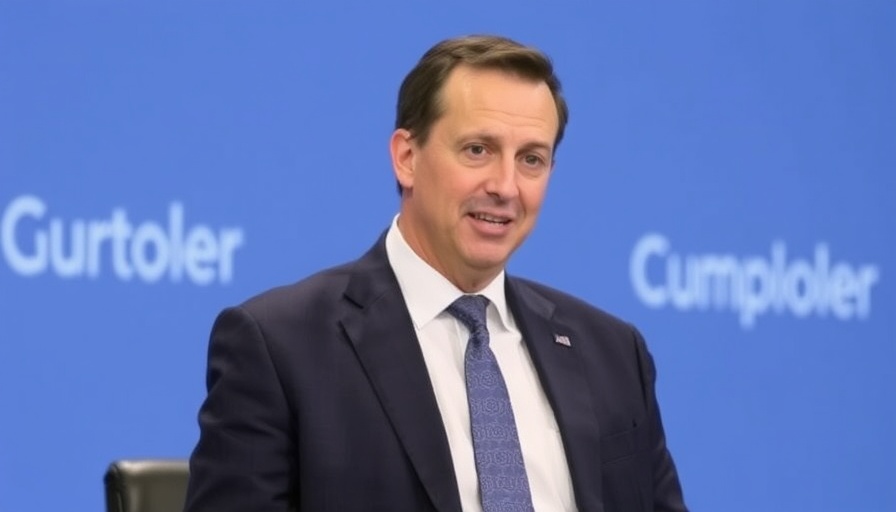
Germany's Trade Shift: Embracing New Partners
In light of rising tariffs and economic uncertainties, German political figure Friedrich Merz is proactively advocating for diversifying Germany's trade partnerships. With concerns about U.S. tariffs affecting traditional economic ties, the push for new trade avenues reflects a strategic pivot in Germany's economic policy.
The Importance of Diversification
Trade diversification is more than just a precaution; it’s a strategic response to volatility in global markets. As U.S. tariffs could potentially disrupt Germany's export economy, fostering relationships with emerging markets becomes increasingly essential. Countries like India, Brazil, and Vietnam hold significant potential for trade growth and could serve as new drivers of economic collaboration. By looking beyond existing partnerships, Germany can protect its economy from unexpected shifts in the global landscape.
Current Economic Context and Trade Analysis
The backdrop of Merz's statements comes amidst global trade tensions, particularly between the U.S. and China. These tensions have resulted in shifting dynamics, prompting many countries, including Germany, to reconsider their international trade strategies. Analysis of recent trends indicates that countries with adaptable trade policies are better equipped to weather economic storms. This presents an opportunity for Germany to enhance its competitiveness on the world stage.
Emerging Markets: Opportunities for Growth Investing
Investors are increasingly looking toward emerging markets as attractive options for growth investing, particularly given current economic challenges in established markets. The open doors Merz talks about could lead to fruitful investments in sectors like technology, healthcare, and renewable energy across developing nations. For instance, businesses interested in expanding into these areas can benefit not only from reduced competition but also from a fast-growing middle-class consumer base in these regions.
Investing Insights for Strategic Growth
With Germany's economic adjustments come new opportunities for investors. Diversifying investment portfolios to include emerging market assets could mitigate risks associated with economic downturns in advanced economies. Investment strategies that focus on international investments are vital now more than ever. Whether through mutual funds, ETFs, or direct investments, the importance of global diversification in asset allocation has never been clearer. Investors should engage in thorough research and utilize investment apps and platforms designed for exploring these emerging markets.
Looking Ahead: Future Predictions
As the global economic landscape continues to evolve, the trends observed in trade relations signal a potential shift toward more regional trade agreements, rather than reliance on traditional powers. This could escalate as nations look for reliable trade partners who align with their economic interests. Merz's push for new trade partners may not only reshape Germany's trading blocs but also inspire other nations facing similar tariff pressures.
Engaging with Sustainable Investing
Additionally, as Germany explores new trade relationships, there's a strong relevance towards sustainable investing practices. Commitment to environmental, social, and governance (ESG) principles can open doors to partnerships that prioritize ethical business practices and sustainable growth. The emergence of impact investing highlights a market segment increasingly appealing to both investors and consumers who value corporate responsibility. By focusing on sustainable investment opportunities, German companies can differentiate themselves in an increasingly globalized market.
Conclusion: Preparing for a New Era
Germany’s pivot towards new trade partners as advocated by Merz provides a vital opportunity not just for governmental strategy but also for investors and businesses looking to capitalize on global shifts. By adapting to the new economic realities and understanding the importance of diversification, individuals and organizations can position themselves for success amid uncertainties. Now is the time to take action, whether by exploring new partnerships or investing in emerging markets.
 Add Row
Add Row  Add
Add 



Write A Comment